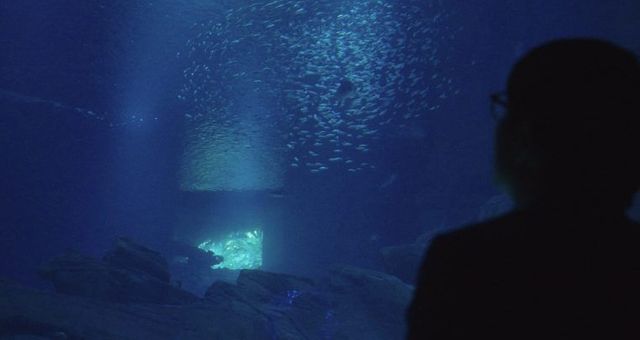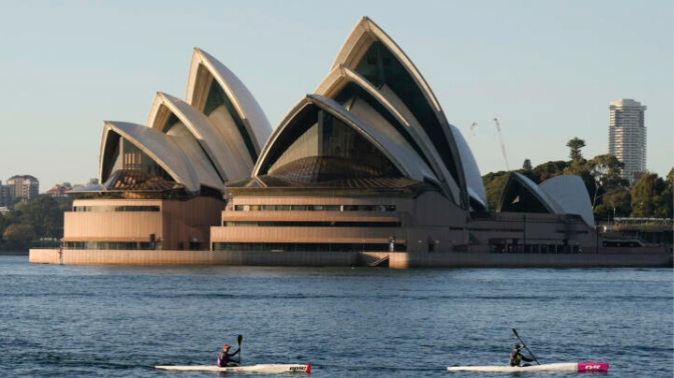
If the end of 2024 was marked by major international conferences on crucial issues for the planet’s future—COP29 on climate in Baku, COP16 on biodiversity in Cali, negotiations for a treaty to combat plastic pollution in Busan, and COP16 on desertification in Riyadh—and their respective failures, 2025 also promises several decisive events. TF1Info shares the key issues of the five most anticipated events.
- A Summit on Artificial Intelligence
France will host a global summit on artificial intelligence in Paris on February 10 and 11. The stakes are high—economic, sovereignty, etc.—but Paris also advocates for an ecological vision of AI. This is, in any case, the roadmap of Clara Chappaz, the Minister Delegate for Artificial Intelligence and Digital, who is one of the few ministers to retain her portfolio despite the censorship.
« We have the assets to make France a great power in artificial intelligence, » she stated last September.
To counter OpenAI, the American giant that invests billions in public and private funds, France seeks to defend a « third way for artificial intelligence, » with three key words: ethics, frugality, and inclusivity.
The specific program of the summit has not yet been revealed, but France hopes to promote a message of more energy-efficient AI: this technology is indeed very energy-intensive, and its carbon footprint is high. Paris advocates for green energy to power AI.
According to the International Energy Agency, electricity demand for digital services (data centers, AI, etc.) will double by 2026, generating +37 billion tons of CO2 in the atmosphere. For France, according to Arcep and Arcom, this sector will generate 50 million tons of CO2 per year starting in 2050.
In a report released in December, the Parliamentary Office for the Evaluation of Scientific and Technological Choices recommends establishing global governance for AI, with the creation of a specialized institution under the auspices of the UN. This institution would be responsible for coordinating international regulation of AI and addressing the global digital divide.
- A Year for Glaciers
The United Nations has declared 2025 the International Year for Glacier Preservation. Threatened by climate change, glaciers play a crucial role in regulating the global climate and provide freshwater to millions of people around the world. This year aims to raise awareness about the state of the cryosphere, which encompasses all the ice present on Earth (sea ice, glaciers, icebergs, and permafrost), which is disappearing or changing due to human activities emitting CO2.
This initiative was echoed in France with the call for polar and glacier preservation launched in Paris last year at an international summit on the subject, and supported by Emmanuel Macron. Joined by about thirty countries, this call aims to strengthen international cooperation to preserve glaciers and the poles.
During this event, the French president announced new investments from France for polar research, amounting to one billion euros by 2030, as well as the construction of a new ship capable of navigating through ice, named the « Michel Rocard. » France also plans to modernize its Dumont d’Urville station on the Antarctic Peninsula by 2026 and renovate the Franco-Italian Concordia station.
Additionally, France has committed to placing « 100% of its glaciers under strong protection, » including the preservation of ecosystems created by melting glaciers.
- Hope for Biodiversity
Among the conferences that faltered in 2024 was COP16 on biodiversity, held in Cali, Colombia, this fall. The 196 member states left without reaching an agreement on the financial roadmap to better protect nature by 2030. However, negotiations will resume this year, and the president of COP16 hopes to secure the long-awaited financial agreement in the first quarter of 2025.
- An International Oceans Conference
While it’s the Year of Glaciers globally, it’s the Year of the Sea in France. The city of Nice will host the first UN international oceans conference in the spring.
This is also a crucial issue: the world’s oceans play a vital role in capturing a portion of the carbon emitted into the atmosphere by human activities. They are also a massive biodiversity reservoir, and millions of people around the world depend on them (fishing, tourism, etc.).
By the time of the conference, the international treaty to protect the high seas (the waters far from the exclusive economic zones of countries, about 370 kilometers from their coasts), which aims to preserve 50% of the planet’s surface and two-thirds of the oceans, should have entered into force. For this, 60 countries must have ratified it. France was the first EU country to do so.
In France, several events are planned to celebrate the oceans and raise public awareness, including heritage days and a biodiversity lottery exclusively focused on the sea.
- A Decisive COP Climate Conference
Finally, the city of Belém, Brazil, will host COP30 at the end of the year: this international climate conference is set to be crucial. In 2025, the signatory states of the Paris Agreement must submit their new Nationally Determined Contributions (NDCs).
In UN terms, these NDCs are simply the new greenhouse gas emissions reduction targets that states are committing to by 2035. These new targets will be closely scrutinized as they will define the global warming trajectory. Prior to these new NDCs, the trajectory projected by UN Environment is +2.6°C-2.8°C by 2100 if all commitments are met (compared to +3.1°C if current policies remain unchanged).
The revised commitments from the states are expected to be published before February, for key negotiations later in Brazil at COP30. According to the latest data, greenhouse gas emissions—mainly due to the combustion of oil, gas, and coal, but also due to other factors like agriculture and deforestation—rose by 1.3% in 2023 compared to the previous year.
However, to keep global warming below the 1.5°C threshold, emissions must be reduced by over 40% by 2030 compared to 2019 levels. This means a 9% annual reduction in global emissions by 2030



